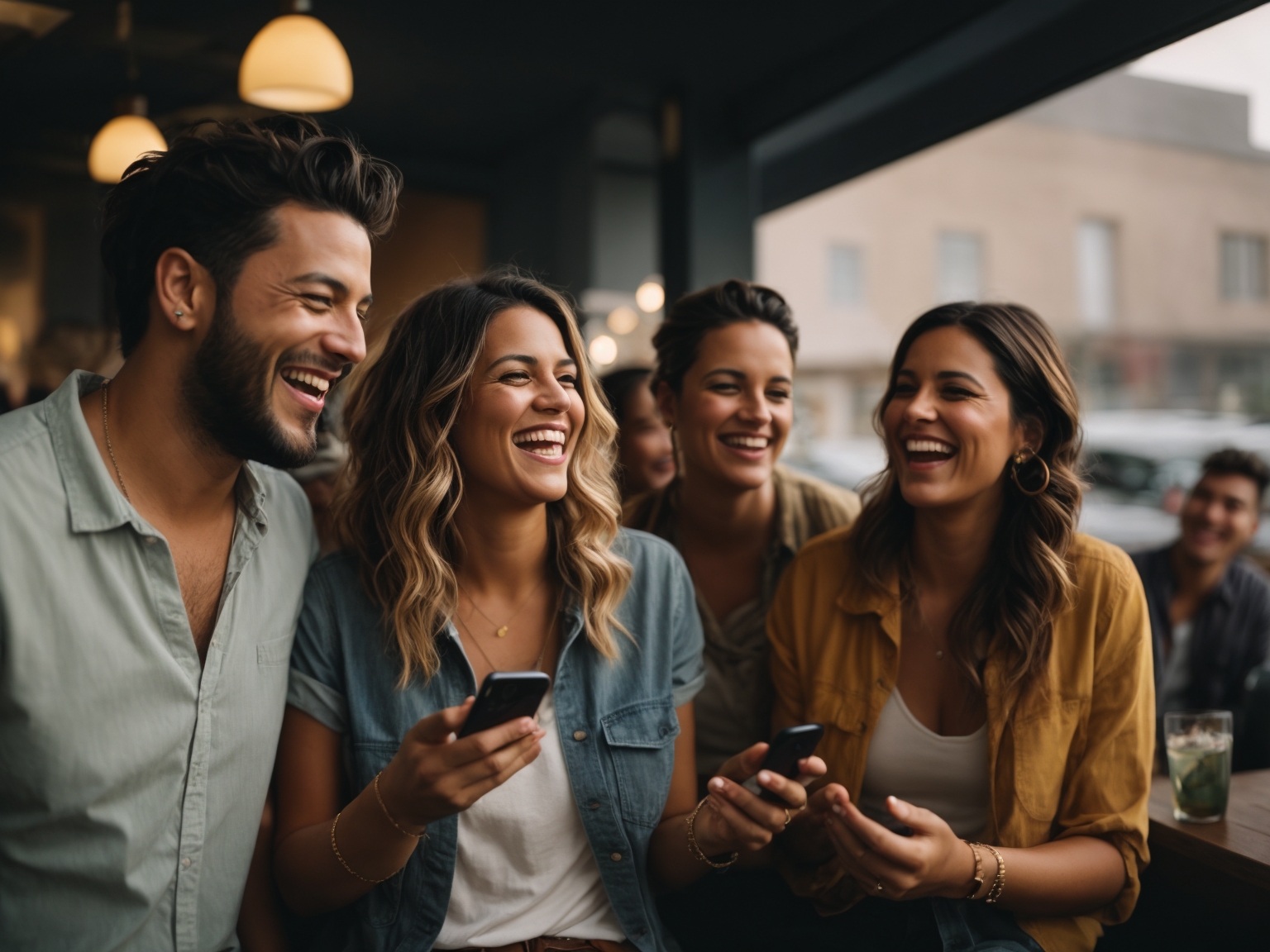Search engines and social media platforms curate content based on user data and browsing history, resulting in an individually tailored online environment – a “filter bubble”. These bubbles are invisible to us but shape the information we consume online.
Because Anketa team created a social platform, centered around public polling, we want to address the limitations of personalized filtering. Broadening users’ exposure to diverse viewpoints, Anketa app challenges the status quo, aspiring to foster a more nuanced and comprehensive understanding of the digital world.
“The Filter Bubble: What the Internet is Hiding from You” is a book written by Internet activist Eli Pariser. Published in 2011, this book is a cautionary tale about the potentially damaging effects of online personalization and a call to action for companies and individuals alike to create a more open and diverse digital space.
The author cautions about the profound implications of personalized online filters. They underscore the issue of limited exposure, where algorithms prioritize content that aligns with our preferences, which results in us frequently being exposed to information that confirms our existing beliefs. This effect creates an echo-chamber that stifles intellectual growth by limiting exposure to diverse viewpoints and reinforcing biases.
Moreover, the author emphasizes the role of these personalized filters in societal polarization. They suggest that by creating separate information worlds for each individual, these filters can lead to heightened societal division, as they amplify disagreements and make finding common ground increasingly difficult.
To mitigate these issues, the author urges technology companies to make these filter bubbles transparent and provide users with more control over their online experience. Additionally, they call on individuals to be cognizant of these bubbles and make a deliberate effort to seek out diverse perspectives.
While the author’s call for action underscores the importance of user control and awareness in countering the effects of personalized filter bubbles, one might wonder how such cognizance would effectively result in individuals seeking out diverse perspectives. This question brings us into the realm of psychological phenomena and their influence on our behavior.
Familiarity, it seems, often breeds liking.
There’s a well-known psychological phenomenon called the “mere-exposure effect” that suggests that people tend to develop a preference for things or individuals they are repeatedly exposed to, even in the absence of any objective reason to do so. In other words, the more familiar something becomes, the more likely individuals are to develop a positive perception of it. This effect was first identified by social psychologist Robert Zajonc in the 1960s.
This can be thought of as another manifestation of the mere-exposure effect: People often gravitate towards romantic partners who resemble their ex-partners in some way, whether it be physical appearance, personality traits, or other factors. This could be due to the familiarity and comfort derived from these known characteristics. However, if the previous relationships were problematic, choosing similar partners could lead to repeating the same issues.
Following the same logic, repeated exposure to a stimulus, whether it be a person, object, or idea, increases familiarity and reduces uncertainty, leading to a more favorable attitude or perception.
The mere-exposure effect operates at a subconscious level and can influence individuals’ preferences and choices without them being fully aware of its influence. While repeated exposure often leads to a preference for the familiar, it does not guarantee that the preference is based on objective quality or merit. Instead, it reflects the human tendency to find comfort and security in the familiar, sometimes leading to the perpetuation of misconceptions or biases.
One practical and straightforward step to burst our own media bubble is to consciously choose to engage with views that diverge from our own. The potential for subconscious bias arising from the mere-exposure effect only underscores the importance of nuanced interpretation.
This could mean following individuals on social media with whom we don’t necessarily see eye-to-eye. It could mean venturing into the territory of books that challenge our worldview, inviting us to consider different perspectives. It could also mean actively listening to people who hold opinions distinct from our own. This deliberate pursuit of diversity in our information consumption can help us to break free from the echo chamber, broaden our horizons, and cultivate a more rounded and informed worldview.
In this context, the act of following someone on social media takes on an interesting dimension. As familiarity often skews our perceptions and influences our choices, it’s critical to remember that a follow does not necessarily indicate an endorsement. It could instead signal a host of other motivations.
Following someone on social media can simply signify a desire to stay updated on their activities, thoughts, or content, without necessarily approving or endorsing their views.
Individuals often follow others, including those they disagree with, to keep abreast of differing viewpoints or to monitor developments. This is especially prevalent in journalism, academia, and politics where understanding various perspectives is essential.
In many cases, people follow others for professional networking or simply for entertainment, neither of which necessitates agreement with the person’s views or actions.
In the context of public discourse, following diverse voices, even controversial ones, can foster a broader understanding of societal attitudes and trends.
Being aware of how social media algorithms work allows users to follow a range of accounts without inadvertently reinforcing certain viewpoints. It enables more informed content consumption.
Popping the Bubble
We must understand that media bubbles are not inherently bad. In fact, we could argue they are natural and unavoidable, given our human inclination to seek out information and communities that resonate with our views and beliefs. This preference for the familiar and for agreement with our existing viewpoints, often referred to as confirmation bias, is well-documented in psychology.
What makes a media bubble potentially detrimental is not its existence, but the lack of awareness or willingness of individuals to step outside of it. It becomes harmful when it stifles personal growth and intellectual expansion or when it fosters extremist beliefs through unbalanced information.
The quest for Anketa is not about confirming what one already knows, but about seeking the truth, even when it might not align with one’s preconceived notions. By stepping out of their comfort zones and engaging with differing viewpoints, Anketa voters and contributors are empowered to broaden their perspectives and foster a more inclusive and nuanced understanding of the world.
Read also

Polling serves as a catalyst for debates by posing questions that prompt all of us to reflect on our beliefs, preferences, and priorities. This often leads to spirited discussions with diverse viewpoints. But although it might sound as something we would rather avoid, it is imperative to leave echo chambers or we risk to trade awareness for biases.


